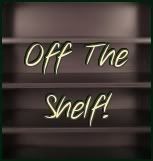
On Beauty by Zadie Smith
4 stars
Reasons for reading: it's been on my TBR list for quite a while; Orange Prize winner for the Book Awards Challenge; English author for the Orbis Terrarum Challenge
Summary (from Booklist): "The Belsey family is multicultural as well as multinational. Howard is English, teaching art history at liberal Wellington College near Boston. His wife, Kiki, is from Florida, and as practical as her husband is intellectual. Although they love each other dearly, Howard's waning career and wandering eye have caused a strain. Their children follow their own paths: Jerome is a Christian; Zora is a socially concerned intellectual; and Levi is trying to be a black man of the streets. When Jerome falls in love with the daughter of Howard's archrival, Monty Kipps, the two families are thrown together in a personal and cultural battle. Although the romance sours, Howard and Monty's rivalry kicks up a notch, while Kiki and Mrs. Kipps develop an unlikely bond. Intermingled with the analysis of family and marriage are commentaries on affirmative action, liberal versus conservative, and prejudices in many forms."
First line: "One may as well begin with Jerome's e-mails to his father"
My thoughts: There's a lot going on in this book! Family, marriage, friendship, nationality, gender, race, class, education...the characters are brought together and pushed apart by
these.
Smith acknowledges EM Forster as one of her influences and says this book is an hommage to him. I confess, it's been a really long time since I read any Forster, probably at least 15 years ago, when I was an undergrad. So those references went completely over my head. Given the role universities play in the book, I might have gotten more out of it had I read it back when I was attending one. But still, the book had so much going on, it would be impossible not to get something out of it.
What I liked best about the book was the humour. Smith has some great turns of phrase. One of my favourites was of a chaotic house that had "too many knicks and a dangerous density of knacks." I really enjoyed her description of the Belseys' house, too, with its one stained glass window that casts a colourful patch on the floor that no family member will walk through and the parade of family photographs that follows the staircase down all 4 floors. There's also a great scene where Howard reacts to a hilarious glee club performance.
I found the differences between the black, white, American and British characters very interesting. While they're both black women, Caribbean-British matriarch Carlene Kipps is conservative, religious, and traditional and Southern American Kiki Belsey, who is a feminist and portrays herself as a big, sassy black woman, are very different in many ways, yet they find common ground and become friends. Howard and Monty Kipps are both British academics, yet not only are they different racially, they have completely different views on politics and life in general. British-born Jerome and Zora Belsey seem to enjoy their privileged, academic upbringing, while American-born Levi Belsey tries to hide his private-school education and pretends to be the epitome of "street" and longs to fit in with the local Haitian refugees (despite his iPod and $120 sneakers). The black/white and liberal/conservative angles were quite interesting to read about in the days leading up to the US election, actually.
The central character, it could be said, is Howard and he's a stunning study in self-centredness - he's a liberal academic who doesn't believe in anything. While he does love his family, he basically refuses to let them care about anything other than academic or theoretical matters. Anything that goes against his "beliefs" is met with mockery. He can't admit he's wrong or apologize. Even his life's work, the study of Rembrandt, has basically been to discredit anything good other scholars have said about the painter's works.
Beauty obviously plays a role - having it, not having it, losing it. Kiki was once very beautiful, but is now very overweight - the beauty is still in there, but it's buried. Howard is described as having been beautiful in his youth, yet it's hard to see in the middle-aged curmudgeon he's become. Victoria Kipps is stunning and knows how to use it. Zora Belsey is not and it frustrates her - she alternates between trying too hard and not trying at all.
This book took a lot of reading and sometimes, especially with the references to art and poetry, I felt like I wasn't quite getting everything I could out of it. But it has humour, it raises some thought-provoking issues, the two rival families are filled with interesting characters, and it ends with hope. I can definitely see why it won the Orange Prize and was short-listed for the Booker.







3 comments:
Good review! I read this when it was first published, and liked it myself, but other people have thought it not good at all. This isn't quite as good as White Teeth, but better than The Autogrpah Man.
RE: EM Forster: I had a friend in college who wrote her senior thesis on this book, and how it WASN'T in any way like his works (and I forget now which book this is supposedly modelled after; A Room With A View, maybe?). But there's definitely an homage to Forster in there somewhere.
I tried to read her first book White Teeth? and I just couldn't get into it. This sounds better.
Katherine - I got the impression the first line was supposed to start the homage to, I think, Howard's End. But it was beyond me.
I've heard that the Autograph Man wasn't all that great. I'm not sure if I'll read another of her books. I'm glad I read this one, but I don't know that I need to read another.
Post a Comment